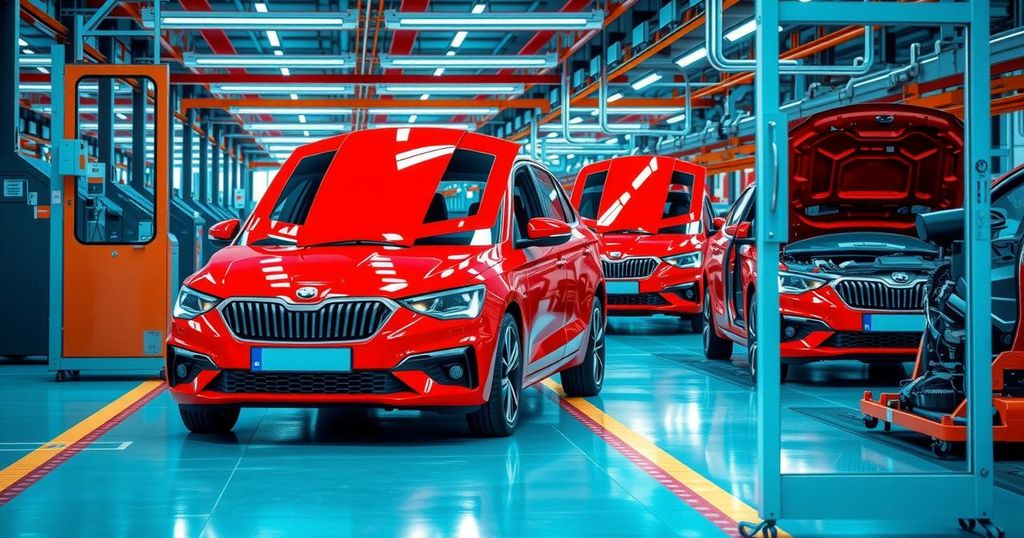AvtoVAZ to Launch Localization Project for Lada in Iran
AvtoVAZ, Russia’s largest automaker, plans to launch a localization project in Iran for assembling Lada vehicles. CEO Maxim Sokolov highlighted the expected competitive advantage from opening dealerships. The company seeks to expand exports in 2025, despite past challenges from US sanctions, aided by increasing cooperation between Iran and Russia in the automotive industry.
AvtoVAZ, Russia’s premier automotive manufacturer, is looking to establish a localization project in Iran focused on assembling the latest version of its popular Lada model. Recent statements by AvtoVAZ’s CEO, Maxim Sokolov, emphasize that by launching assembly lines and dealerships in Iran, the company hopes to gain a notable competitive edge in the market.
On Tuesday, Sokolov conveyed to news agency Tass that the company is making substantial investments in its Iranian strategy, with expectations to open a dealership in the near future. An as-yet-unnamed Iranian business partner has expressed interest in AvtoVAZ’s entire Lada product line, including the recently introduced Iskra model, which Sokolov claims will outclass the majority of vehicles currently assembled in Iran.
The aspiration to expand Lada exports by 2025 is part of a broader strategy that targets not just Iran, but also Kazakhstan and Vietnam. The affection for vintage Lada models among Iranian consumers dates back to the 1970s, when these vehicles were known for their safety and dependable performance.
However, AvtoVAZ’s endeavors in the Iranian market over the past few years have encountered challenges, mainly due to intense U.S. sanctions affecting Iran. Nonetheless, the strengthening relationship between Iranian and Russian automotive industries has facilitated easier access for Russian vehicles into Iran, making the market more viable.
The collaboration has gained momentum particularly since early 2022, a period marked by the withdrawal of major automotive companies from Russia, including Renault, which previously held shares in AvtoVAZ due to Western sanctions linked to the conflict in Ukraine.
Moreover, prominent Iranian car manufacturers, IKCO and Saipa, have established contracts for the export of vehicles and components to Russia, signaling a shift in the local automotive landscape. Future joint manufacturing endeavors are also reportedly being discussed between the two nations’ automotive sectors, indicating a potential turning point for Russian carmakers in Iran’s market.
As these developments unfold, AvtoVAZ’s local assembly plans could potentially reshape both the Iranian automotive market and the company’s positioning in the region.
In summary, AvtoVAZ’s initiative to establish a localization project in Iran presents a significant opportunity for the Russian carmaker to leverage its brand recognition and product offerings. With plans to launch assembly lines for the new Lada models and a commitment to expanding exports in the coming years, AvtoVAZ aims to tap into a market that has historically embraced their vehicles. As collaborations between Iranian and Russian manufacturers grow, both regions may benefit economically and technologically in the automotive sector.
Original Source: www.presstv.ir




Post Comment